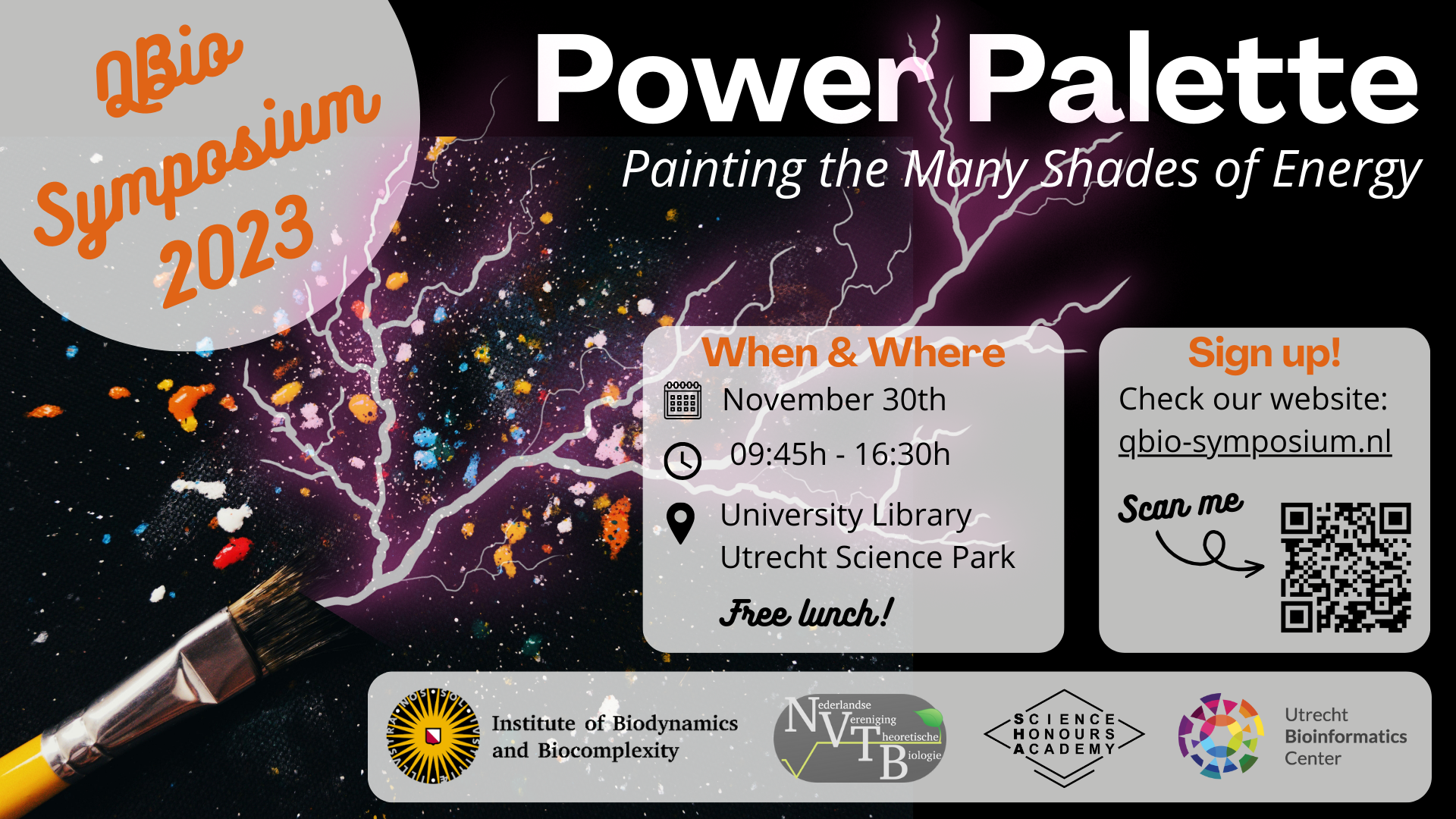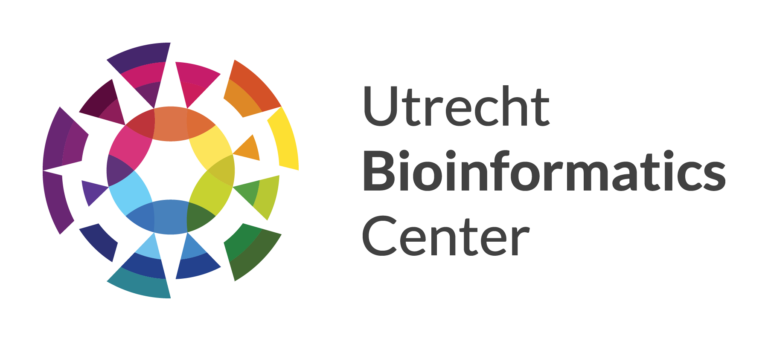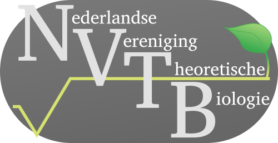QBio Symposium 2023
“Power Palette: Painting the many shades of energy”
In this yearly symposium, part of the QBio honours programme, we explore a subject from the point of view of multiple research disciplines, including quantitative biology (QBio).
This edition will be all about energy. How does energy drive the world around us? From nuclear fusions to the energy in your brain, we will explore it all!
Registrations are now open!
Register at qbio-symposium.nl/register
| Schedule | |
|---|---|
| 09:00 | Room open |
| 09:45 | Introduction |
| 10:00 | |
|
Fusion Energy: the promise of an almost inexhaustible source of energy
by dr. Egbert Westerhof (DIFFER) Abstract
Fusion Energy, the energy that is released by fusing light nuclei, holds the promise of providing mankind with a safe and almost inexhaustible source of energy. In this talk I will present the recent achievements in the field of fusion energy research and will sketch the road that remains to be travelled in order to realize our dream of a safe and environmentally friendly fusion reactor. |
|
| 11:00 | |
| Unlocking flexibility with batteries and digital twin in the built environment by Simone Coccato (UU) |
|
| 12:00 | Lunch |
| 13:00 | |
| EEG theta power predicts response inhibition by dr. Daan van Rooij |
|
| 14:00 | |
|
Complexity in health and nutrition: adaptation, transitions and resilience in energy metabolism
by prof. dr. ir. Natal van Riel (TU/e) Abstract
Complexity science and systems medicine approaches are combined to study health and nutrition. We have developed multi-scale dynamic system models of human metabolism. Mathematical models of the metabolic response to food intake have been used to create personalized computer models for about 5,500 people. Scientific machine learning is used to update these “virtual twin” models according to changes in their human counterparts. This allows us to make predictions about the effects of diet intervention, bariatric surgery, or weight loss medication. |
|
| 15:00 | Break |
| 15:30 | |
|
Towards brain-inspired devices for energy efficient computing
by Tim Kamsma (UU) Abstract
The brain’s computing principles (neurons connected by synapses) and information carriers (ions in water) both differ fundamentally from those of conventional computers. Remarkably, this allows the brain to be orders of magnitude more energy efficient than ordinary computing devices. This disparity is now drawing major interest due to the unsustainable rapid increase in energy consumption by computers, driven predominantly by AI. Recent successes were achieved in constructing neuromorphic (brain-inspired) circuits, i.e. devices that talk like the brain. However, the focus so far has almost exclusively been on solid-state systems with a single information carrier (typically electrons or holes), a stark contrast with the rich aqueous electrolytes harnessed by the brain. A recent sudden rise in interest is shown in neuromorphic systems that also take inspiration from the brain’s aqueous medium. In this talk we will first delve into the exciting field of neuromorphic computing and then zoom in on the newly emerging direction of fluidic ionic neuromorphic computing, which aims to create devices that proverbially both walk and talk like the brain. |
|
| 16:30 | Wrap-up & drinks |
| 17:30 | End of the symposium |
Egbert Westerhof is working at DIFFER, the Dutch Institute for Fundamental Energy Research situated in Eindhoven. As head of the Fusion Energy Department and group leader of Integrated Modelling and Magnetohydrodynamics, he oversees many projects on these topics.
Simone Coccato Msc.
Simone Coccato is a PhD candidate at Utrecht University, where he focuses on creating innovative solutions in the context of photovoltaic solar energy and energy in the built environment.
dr. Daan van Rooij
Daan van Rooij is an assistant professor in Experimental Psychology at Utrecht University. He investigates impulsive behaviour in children with the help of fMRI and EEG imaging, in combination with machine learning techniques.
prof. dr. ir. Natal van Riel
Natal van Riel works at the Eindhoven University of Technology, as head of the Computational Biology group and the Systems Biology and Metabolic Diseases research program. His research knows many applications in health care, for example in quantifying the benefit of bariatric surgery in resolving metabolic diseases.
Tim Kamsma Msc.
Tim Kamsma is a PhD Candidate in Theoretical Physics and Mathematics at Utrecht University. Inspired by the structure of the brain, he studies the field of neuromorphic computing to develop sustainable solutions for the large energy consumption of computer systems.






